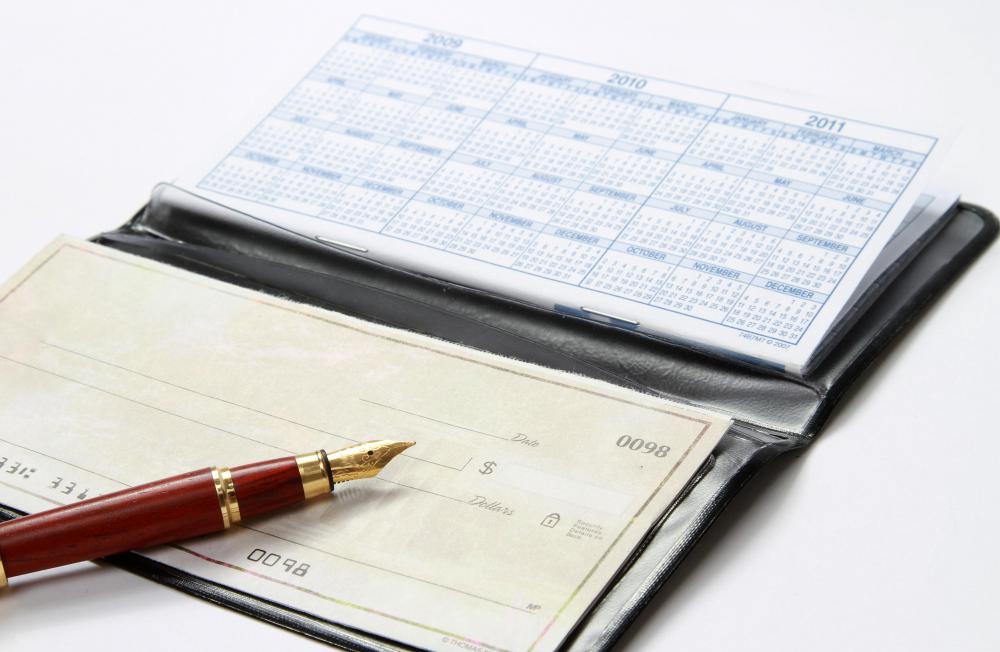At SmartCapitalMind, we're committed to delivering accurate, trustworthy information. Our expert-authored content is rigorously fact-checked and sourced from credible authorities. Discover how we uphold the highest standards in providing you with reliable knowledge.
What is Single-Entry Bookkeeping?
Single-entry bookkeeping is a simple system of accounting, in which a single line is used to record each transaction. A bookkeeping journal or statement is typically used to record monetary entries as they occur with credits or debits entered once. Single-entry bookkeeping is often compared to that of a checkbook register or a simple financial statement.
It is common with simple bookkeeping systems that parentheses are used to reflect negative transactions, such as withdrawals or payments. Money coming in, like payments or credits, is not surrounded by parentheses. The parentheses are a straightforward way to differentiate between money being spent, or expenses, and money being deposited, called revenue.

Revenue and expenses can be totaled by week, month, or even year using any single-entry system. Despite being called single-entry, there is more than one method of this accounting system. It is important that all information for each entry is recorded on a single line for it to be considered single-entry bookkeeping.
A common form of the single-entry recording is when one line is used for all of the details for each transaction, including the date, description, amount, etc. Every line is recorded in the same way throughout the bookkeeping statement. This type of single-entry recording does not separate the revenue and expenses by columns or headings. If totals for revenue and expenses are required, they will have to be calculated by tabulating them separately.

Another form of single-entry bookkeeping separates the revenue and expense by creating separate columns on the statement. Each recorded entry would list the date, description and amount as either revenue or expense with a column for each field. It is not uncommon for columns to be added for specific categories. Examples of these columns include taxes, rent and other such items that are routinely recorded on bookkeeping statements.
Regardless of the number of columns on the statement, a single line is still used to record each transaction. The columns provide a way to organize different details of expenses or deposits. In this way, specific categories can be totaled, as well as being able to determine the end balance of the statement.
Bookkeeping is necessary to ensure organized financial management. The single-entry system is a preferred method for many small businesses and personal bookkeeping because of the simplicity of the system. This method of bookkeeping can be learned quickly without extensive training or professional oversight. Single-entry bookkeeping offers a straightforward, simple method for maintaining a basic level of financial documentation.
AS FEATURED ON:
AS FEATURED ON:












Discussion Comments
@titans62 - I agree and disagree with you at the same time.
Although a computer should be more accurate than a human that does not mean it always is. Unfortunately, computers can malfunction and records can be lost and that is why it is best to keep a back up copy of all records kept on paper and the easiest way in which to do so is through a ledger with some type of single entry bookkeeping.
Think for a second if we relied entirely on technology for everything. Almost always it is better, but what happens if something were to go wrong? That is why back ups entirely kept by humans need to be made available for people so the worst does not happen for their financial investments.
@cardsfan27 - I absolutely agree with you as far as the online thing goes.
Although people can be paranoid about online record keeping, however, when it comes down to it it is definitely the way to go and is less susceptible to error as opposed to single entry bookkeeping.
I have screwed up my check book many a times and it is definitely something that can happen to someone very easily and a computer will always be more accurate than a human being.
@matthewc23 - I find single entry bookkeeping to not be as accurate as one may think as it all depends on the person keeping the records.
As far as back up records go it is very important for people to keep a checkbook and write down every transaction on their own as often as possible. This allows one to look at the main statement and see if there are any indescretions that they have to worry about.
Even though this is a great back up ledger to have it is definitely something that should not be used as the main record keeping as a transaction can be forgotten as opposed to using some type of online source which will accurately keep records up to date.
The great thing about single entry book keeping is that it is a very easy way to keep track of transactions made and how much has been spent and attributed.
I find this to be a lot easier that online bookkeeping simply due to the fact that you have it in your hand and have your own personal ledger in your possession and not have to worry about simple lack of communication or a communication break down occurring or the dreaded loss of online records occurring.
I find a single entry type of bookkeeping to be the way to go as far as making sure that records are accurately kept and there is little worry of records being lost.
Post your comments